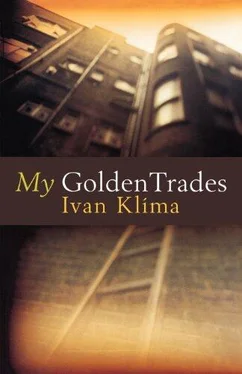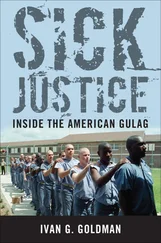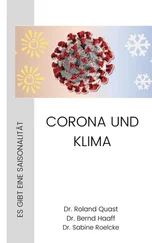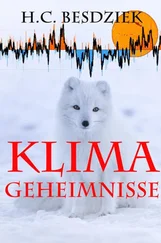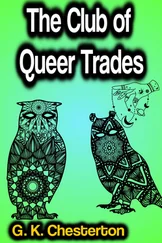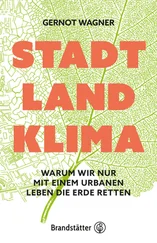Ivan Klima - My Golden Trades
Здесь есть возможность читать онлайн «Ivan Klima - My Golden Trades» весь текст электронной книги совершенно бесплатно (целиком полную версию без сокращений). В некоторых случаях можно слушать аудио, скачать через торрент в формате fb2 и присутствует краткое содержание. Год выпуска: 1998, Издательство: Granta UK, Жанр: Современная проза, на английском языке. Описание произведения, (предисловие) а так же отзывы посетителей доступны на портале библиотеки ЛибКат.
- Название:My Golden Trades
- Автор:
- Издательство:Granta UK
- Жанр:
- Год:1998
- ISBN:нет данных
- Рейтинг книги:4 / 5. Голосов: 1
-
Избранное:Добавить в избранное
- Отзывы:
-
Ваша оценка:
- 80
- 1
- 2
- 3
- 4
- 5
My Golden Trades: краткое содержание, описание и аннотация
Предлагаем к чтению аннотацию, описание, краткое содержание или предисловие (зависит от того, что написал сам автор книги «My Golden Trades»). Если вы не нашли необходимую информацию о книге — напишите в комментариях, мы постараемся отыскать её.
My Golden Trades — читать онлайн бесплатно полную книгу (весь текст) целиком
Ниже представлен текст книги, разбитый по страницам. Система сохранения места последней прочитанной страницы, позволяет с удобством читать онлайн бесплатно книгу «My Golden Trades», без необходимости каждый раз заново искать на чём Вы остановились. Поставьте закладку, и сможете в любой момент перейти на страницу, на которой закончили чтение.
Интервал:
Закладка:
Historians prefer the testimony of archaeologists. Unfortunately, archaeologists derive most of their knowledge of the Celts from graves. I am sceptical of the notion that we can know much of life from the grave,
though I admit that the way we bury our dead today reveals much about how relationships among the living have deteriorated.
Long before Caesar encountered religion in its Druidic form, the Celts worshipped both their heroes and the forces of nature: the goddess Mother Earth being foremost of those. Everything that surrounded them was an expression of spirits, whose voices they tried to hear and understand.
I'd love to know what those voices sounded like. Did they sound like the howling of the wind, like birdsong or the buzzing of bees? Or were they like the pounding of metal, as might have suited that age of metalworkers? Or did they perhaps come to man as invisible and inaudible vibrations, filling him with anxiety, love and portentous dreams — and do they sound essentially the same today?
'Did you find everything?' Lida, our boss, put down the scraper she was using to remove a thin layer of dirt from the grave. She was young, although her hair was prematurely grey, befitting her dignified bearing and her position.
I handed her the instruments, she gave me her customary smile and immediately divided the bundle of paper bags in half and handed one lot to Petra, who began putting lumps of clay into them. The lumps were lightly veined with tiny fragments of bone. 'Wonderful old fellows, aren't they?'
'That's all you've found?' I asked, mainly out of politeness.
'That's about it. A few bits of carbon. It's not going to be a good day. Just like all this week. I had a feeling it would be this way when I got up this morning.' Petra has a figure like the women on the fresco from Pyl: narrow waist and large breasts, black eyebrows that almost met over her
nose, and almond eyes — just like a Greek woman. 'Like last week, as soon as I saw Lida by the bus, I told her, "Today we're uncovering a treasure."'
Last Monday, at the edge of the uncovered part of the burial ground, they had unearthed a bronze needle, a buckle and part of a hollow tube that looked more than anything else like a bronze syringe. They couldn't say what it had been used for, and rather than trying to concoct a hypothesis that would have upset all our notions of ancient medicine — which I would have enjoyed — they wrapped everything in cotton wool, put it in a box, and we took it all the way to the next district where, in the middle of a wheat-field, a group of pensioners were digging under the guidance of a professor from the Academy.
Lida and Petra had talked all the way about their discoveries while I observed the countryside, which was still covered with trackless, uninhabited forests. It was here, mostly in the upland areas, that the Celts had built their settlements. They had lived here for centuries, and their spirits lived here with them. Then they suddenly vanished. But had they really left no more behind them than these few fragments and shards we were now discovering in their graves?
The professor knew her bronzes, and she received us warmly. She showed us the grave-site they'd uncovered in the field, swept clean of the last scrap of earth, and a large vessel still embedded in the ground. Then she offered us cakes. She couldn't be sure to what use the little tube had been put. 'You'll have to be satisfied with having uncovered something unique,' she had said to Lida. Lida had flushed with delight.
I went over to the next partially uncovered grave-site,
took a pick, and began to dig.
Masha came back with the empty barrow. With a shovel, she carefully removed the clay I'd loosened, then thoroughly examined each shovelful with her eyes and her fingers.
'Masha, are you hungry?' I asked, pulling the apple out of my pocket.
'Thanks, that's awfully kind of you. It's as hot as the Sahara out here,' she said, wiping the sweat from her forehead. 'If only we could find something. Petra says we won't uncover a single bone today.'
Masha is just seventeen. She has a wide, good-natured face, large, curious eyes and rather thick legs. Two days ago she rode through the back gate in the fence surrounding the building site on a bicycle that looked cobbled together from spare parts. She stopped at the edge of the grave-site, hesitating a while before daring to offer her services.
'If you work for us, you won't make enough to cover your petrol,' said Lida, pointing to the engineless machine.
Masha laughed. She said she was mainly concerned about getting the proper stamp in her I.D.
'But I found a bone a while ago,' she announced to me proudly. 'Just a tiny little fragment. Lida thinks it's from a skull.'
'Congratulations, Masha!'
'As a matter of fact, it made me feel kind of sad.'
'Why?'
'Because someone was once alive, and whether he was miserable or whether he was happy, it was all the same to them, wasn't it? And now all that's left of him is this tiny little bone — I almost missed it.'
'And what about his soul?'
'Do you think he had one?'
'The Celts believed that souls migrated into new bodies.'
'Do you believe that?'
'I don't suppose I do.'
When I was a boy I was bothered by the question of whether the unbelievers and pre-Christian souls would experience salvation and resurrection. The previous night I had been reading an ancient edition of Eusebius's History of the Christian Church. Sixteen hundred years ago, the author had written on that very theme, about how Jesus had descended into hell, having destroyed its gates, which for ages had been unmoveable, and how on the third day he arose from the dead, and resurrected with him the other dead, who had remained in the earth from ancient times. Today I no longer worry about such questions. I've realized that everything that has ever been preached over the centuries about the soul or about God, about the origins of the world or of life, is merely intimations, fragments or shards of something that goes far beyond our proud reason; our imagination can only seek in vain for words or images which might compose the fragments into a whole. And I am amazed by how readily that which we declare to be a sign of God's will or intervention is delineated by human time and human dimensions. Even those I consider wise cling desperately to fragments and persuade themselves, and others, that they have the whole vessel. I have been coming to terms with my own being and my future non-being all my life. The self-assurance of those who claim to know, even roughly, how it was and how it will be awakens my mistrust.
'Sometimes I think nothing has any meaning,' Masha
said, waving towards the stones that outlined our grave-site. 'Actually, I wrote a story about it.' She blushed. 'You write stories?'
'Sometimes, only when I get certain ideas.' 'What was the story about?'
'Someone poisoned my cat a little while ago. He was a beautiful torn, really adorable. Everyone said he was the most adorable creature they'd ever seen. I decided that it must have been done by someone really hungry for revenge
Vítek, the foreman, who was walking by the next grave, stopped and interrupted our literary discussion with a down-to-earth question: 'What colour was the cat?'
'He was a strange kind of yellowish-brown. He looked like a miniature lion.'
'Do you know who did him in?'
'That's just it; I don't know who could have done such a thing. It's like the Vietnamese. Those poor people are so far from home, and no one likes them. In our town, whenever you go into a store and ask for something they don't have, the shopkeepers tell you that the Vietnamese have bought it all.'
'Don't talk to me about those little gooks!' snapped the foreman angrily. 'I'd like to see you when one of them goes crazy. One of them here went after the section chief with a pick-axe. It took three men to hold the bastard back.'
Читать дальшеИнтервал:
Закладка:
Похожие книги на «My Golden Trades»
Представляем Вашему вниманию похожие книги на «My Golden Trades» списком для выбора. Мы отобрали схожую по названию и смыслу литературу в надежде предоставить читателям больше вариантов отыскать новые, интересные, ещё непрочитанные произведения.
Обсуждение, отзывы о книге «My Golden Trades» и просто собственные мнения читателей. Оставьте ваши комментарии, напишите, что Вы думаете о произведении, его смысле или главных героях. Укажите что конкретно понравилось, а что нет, и почему Вы так считаете.
